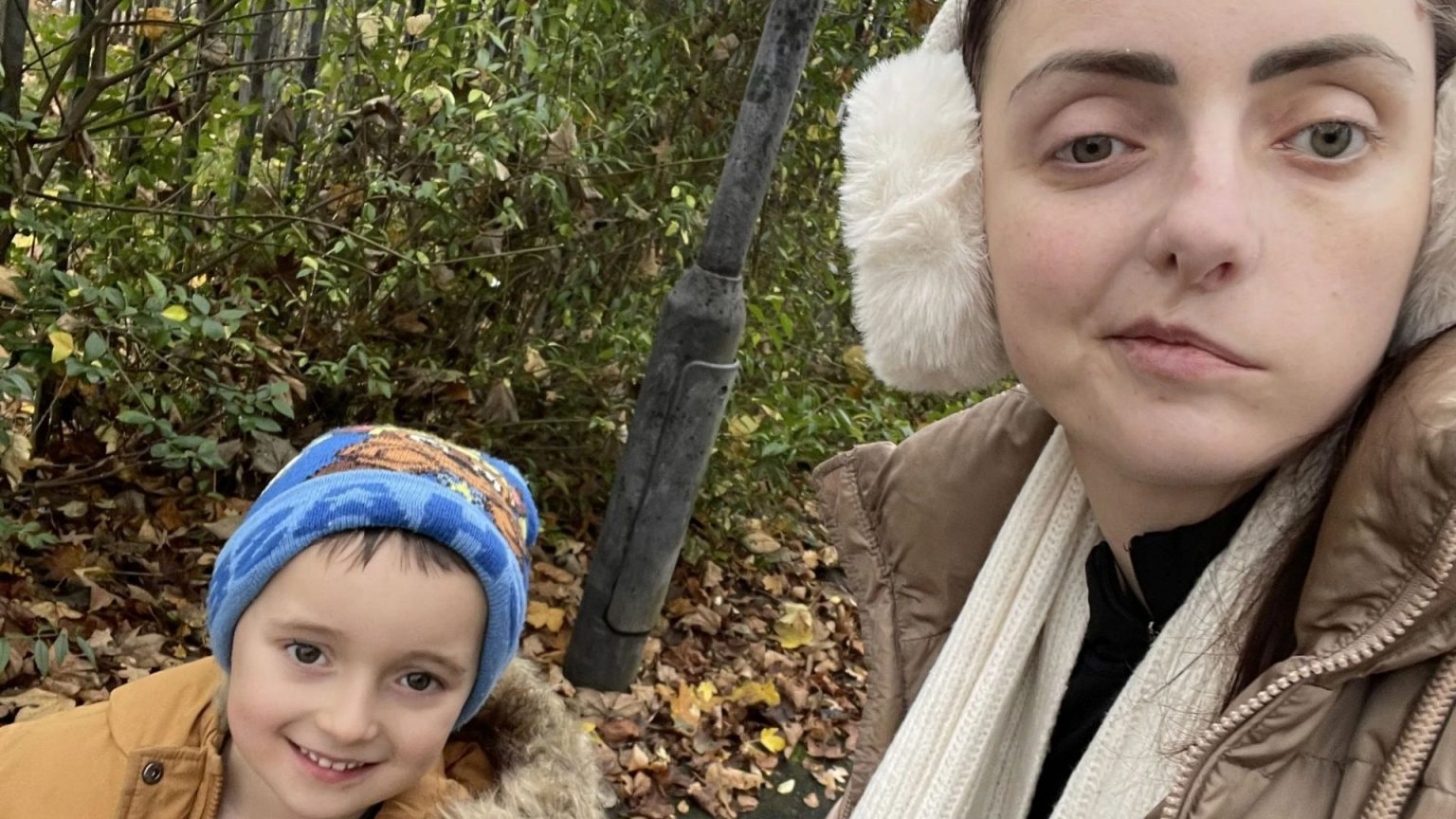Jade-Marie Clark’s journey began during her first pregnancy in 2020, marked by excruciating ear and facial pain that she initially attributed to an ear infection. The pain persisted even after giving birth to her son, Theo, though it lessened in intensity. Two years later, during her second pregnancy, new symptoms emerged: headaches and a persistent twitching in her eye. Busy with her studies to become a nursery school teacher and caring for a toddler, Jade-Marie dismissed these issues as stress-related and hormonal fluctuations, respectively. However, when she experienced numbness in the corner of her lips at three months pregnant, she sought medical attention, a decision that would drastically alter the course of her life.
An MRI at Queen Elizabeth University Hospital in Glasgow delivered a devastating diagnosis: a brain tumor. While the news was shocking and terrifying, Jade-Marie had to wait until after the birth of her second son, Rory, in November 2023, to undergo surgery for the removal of the growth. The tumor, later identified as an acoustic neuroma, a rare, benign growth affecting the nerve responsible for hearing and balance, had likely been present for years, silently growing from 1.7 millimeters to 3.1 centimeters in just six months. The medical team explained that her case was unusual, with the diagnosing physician having encountered only one other similar case in two decades.
The 10-hour surgery to remove the tumor was successful in extracting most of the growth; however, a small portion remained attached to a nerve, left untouched to minimize the risk of facial palsy. Despite this precaution, just two days post-surgery, Jade-Marie developed facial palsy, a condition causing weakness or paralysis of facial muscles. The palsy manifested as an inability to close her right eye, produce tears, and smile, dramatically impacting her self-confidence and mental well-being. The constant dryness in her unblinking eye caused significant pain, and the realization that her face wasn’t recovering as she’d hoped led to feelings of depression and anxiety. The once vibrant young mother found herself withdrawing from social interactions, consumed by the fear of being judged or ridiculed for her altered appearance.
The impact of facial palsy extended beyond the physical discomfort and aesthetic changes. Jade-Marie’s emotional well-being suffered immensely. She struggled with self-doubt, anxiety, and depression, fueled by the visible difference in her face. The fear of being judged or stared at led her to isolate herself, avoiding social situations and retreating inwards. The simple act of smiling, once effortless and natural, became a painful reminder of her condition. Despite the support of her family, the emotional toll was significant, highlighting the often overlooked psychological consequences of facial palsy.
Nine months after the surgery, with no improvement in her facial function, Jade-Marie prepared for further procedures to address the palsy. Scheduled for an eyelid weight implant to help close her right eye and a complex nerve transfer and graft procedure to potentially restore her smile, she clung to the hope of regaining some semblance of normalcy. The medical team estimated an 80% chance of smile restoration, albeit with a recovery period of up to 18 months. While the prospect of further surgery and extended recovery was daunting, the possibility of smiling again provided a much-needed beacon of hope.
In the midst of her challenging journey, Jade-Marie found solace and support in online communities, connecting with others facing similar struggles with facial palsy and brain tumors. She began sharing her story on TikTok, not only to raise awareness about her rare condition and its associated symptoms but also to provide comfort and connection to others navigating similar experiences. Her online presence became a source of strength and empowerment, transforming her personal struggle into a platform for advocacy and support. By openly sharing her vulnerability, Jade-Marie fostered a sense of community, reminding others that they are not alone in their battles.




